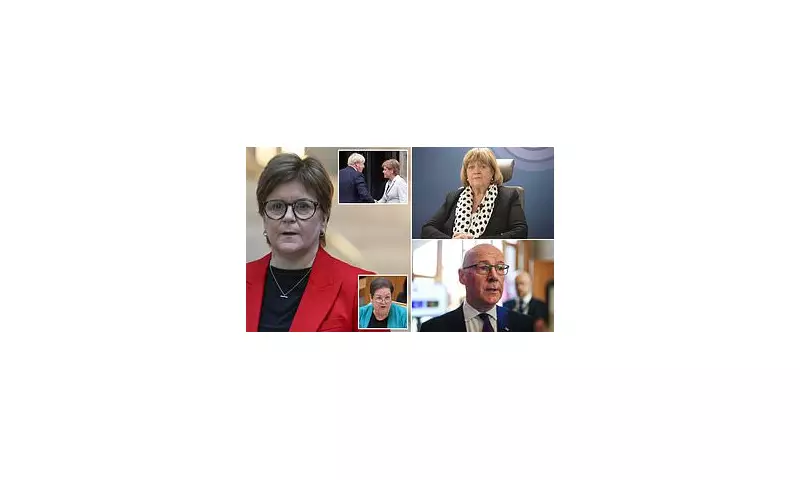
Pandemic Myth Shattered by Official Inquiry
The widely held belief that Nicola Sturgeon provided uniquely wise and compassionate leadership during the coronavirus pandemic was decisively dismantled yesterday. At 4pm, a report from the UK Covid-19 Inquiry, chaired by Baroness Heather Hallett, cut through nationalist spin to deliver a damning verdict on the former First Minister's actions throughout the health crisis that began in 2020.
The inquiry paints a grim picture of a leader, unwilling to co-operate with both rivals and colleagues in the name of public safety, presiding over a government that lacked a coherent plan.
Centralised Control and Political Antipathy
Much of the criticism levelled at Ms Sturgeon will come as little surprise to those who have followed her career. The inquiry chairwoman found that decision-making in Scotland was too centralised, resting with a small group of ministers while senior cabinet members were sidelined.
Most troublingly, Baroness Hallett concluded that political antipathy between Ms Sturgeon and then Prime Minister Boris Johnson caused unnecessary tensions between the Scottish and UK Governments. This breakdown in trust occurred at a time when cooperation was genuinely a matter of life and death.
The report also criticises the former First Minister's use of WhatsApp messages, many of which were deleted, for official communications. This practice, the inquiry states, made record-keeping more difficult and less reliable, hindering the search for the truth.
Devastating Consequences of Complacency
By the middle of February 2020, Baroness Hallett reports that all four governments across the UK knew enough about the developing threat to spur them into action. Instead, they failed to get a grip on the situation.
During the early days of the crisis, the Scottish response went no further than monitoring the situation. The consequences of this complacency were devastating, as anyone who lost loved ones to the virus in those early days knows painfully well.
The Scottish Government's decision to pursue a zero-covid strategy is also rightly criticised. The idea that Scotland could eradicate the disease while it raged across the rest of the UK was always destined to fail.
One of the most devastating decisions taken by Ms Sturgeon's government had direct and fatal consequences. As the virus spread, older people were sent to care homes without having been tested for Covid-19. This decision alone led to more than 4,000 deaths in care homes.
Defensive Response and Calls for Accountability
Ms Sturgeon's response to the inquiry's criticism has been predictably defensive. In a statement issued on her behalf by the SNP, she maintains that all of her ministers and officials played a 'full role' in decision-making.
Regarding her daily briefings, for which she was widely praised by supporters, Ms Sturgeon said they 'were about providing open, supportive and empathetic leadership in an extremely unpredictable and frightening situation'. She claims she still hears 'almost daily' from members of the public about how important these briefings were.
However, Scottish Labour's deputy leader, Dame Jackie Baillie, emphasised that the inquiry's report cements the central role John Swinney played in the SNP government's pandemic response. She noted it was disappointing that the First Minister failed to come to Parliament to make a statement and take questions on the report himself.
Dame Jackie stated: 'John Swinney was at the heart of the decision-making when older people were sent to care homes untested and Covid positive, leading to a devastating 4,000 deaths in care homes. He hindered the search for the truth by deleting his WhatsApp messages. The First Minister owes the people of Scotland a real apology for the decisions he took at this time.'
Despite these calls, there appears to be little expectation of contrition from either Mr Swinney or Ms Sturgeon, leaving the families of those who suffered during the pandemic still waiting for full accountability.






